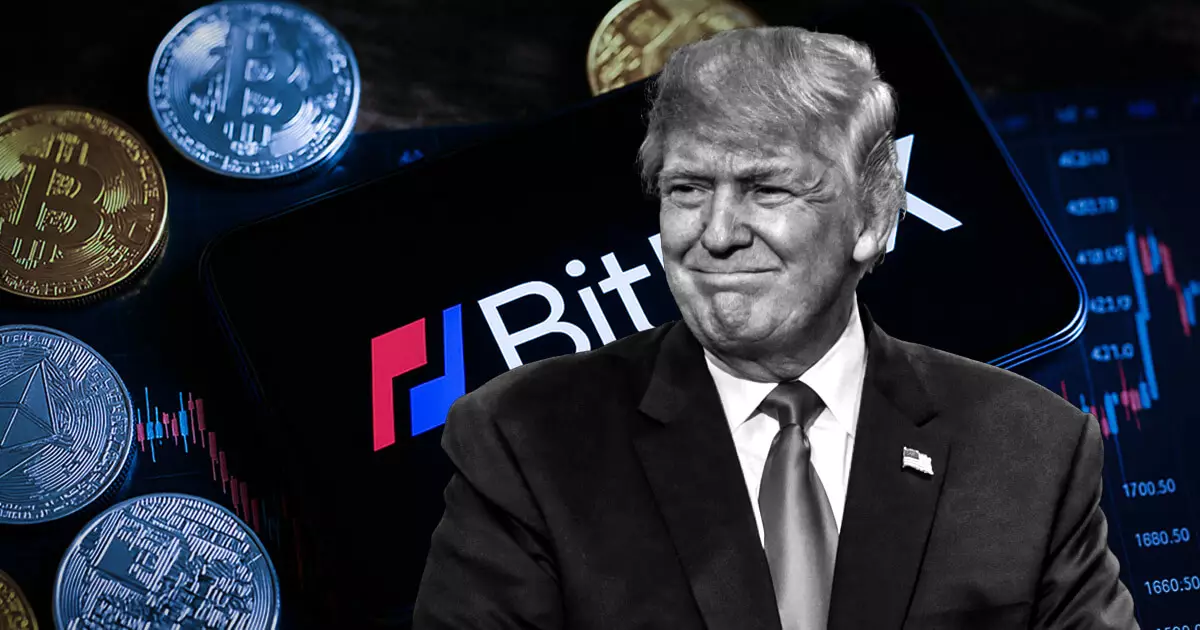The recent pardons granted by President Donald Trump to the co-founders of BitMEX, a notorious cryptocurrency exchange, have ignited a firestorm of debate about the approach to financial regulation in the digital asset sphere. Pardoning Arthur Hayes, Benjamin Delo, and Samuel Reed, who had previously pleaded guilty to violating the Bank Secrecy Act, speaks volumes about the political landscape concerning financial oversight. While proponents of the cryptocurrency industry may see this as a triumph, the reality is that such actions undermine the rule of law and set an ominous precedent for future regulatory efforts aimed at ensuring a safe financial ecosystem.
The founders’ claims of being persecuted for operating in an “outdated legal framework” obscure the deeper issues at play. Financial regulations, especially in the context of emerging technologies like cryptocurrency, are designed to create a level playing field and protect the integrity of our financial system. The actions of BitMEX’s leadership, as highlighted by the prosecution, illustrate a flagrant disregard for these laws, leading to significant risks for investors and the broader economy.
The Fallout from the BitMEX Scandal
The implications of the BitMEX case transcended mere financial penalties; they entered into a realm of trust and accountability. By allowing U.S. citizens to trade without proper identity verification, BitMEX effectively turned itself into a breeding ground for illicit financial activity. The exchange’s insistence on minimal registration requirements and its blatant neglect of regulatory obligations sent a dangerous message—that money could be laundered and illicit activities facilitated with impunity.
The federal government’s actions against BitMEX not only pursued justice but also signaled a commitment to protect American consumers in an increasingly complex and digital financial landscape. A failure to uphold these principles sends a signal that certain players in this market are above the law. The pardoning of the BitMEX founders could inspire a cavalier attitude toward compliance, where unethical behavior is rewarded rather than punished.
Political Motivations Behind the Pardons
Almost immediately after the pardons were issued, speculation ran rampant regarding the political motivations behind such a controversial decision. Trump, often seen as a populist figure, has a history of appealing to certain sectors of the economy that see regulatory overreach as detrimental to innovation. However, doing so at the expense of basic financial principles is a slippery slope. Delo’s assertion that they had been made “examples” of, lamenting their prosecution as politically motivated, adds fuel to the narrative of a growing mistrust in regulatory institutions.
While it’s essential to promote innovation, especially in burgeoning sectors such as cryptocurrency, unchecked development can lead to chaos. The reality is that regulations exist for a reason—largely to protect the consumers who often find themselves in vulnerable positions when complex financial instruments go awry. President Trump’s pardons could send a perilous message to other creators and platforms that they can operate outside of legal and ethical boundaries without fear of retribution.
The Blurring of Lines in Financial Accountability
As the BitMEX episode continues to unfold, it raises questions about the blurred lines in our financial accountability structures. With government officials highlighting the risks posed by exchanges that evade compliance measures, the ability to sidestep justice undermines the very framework designed to protect stakeholders.
While the cryptocurrency realm is too often heralded as a bastion of freedom and innovation, recognizing the risks attached to lax governance is crucial. Regulatory measures, although sometimes cumbersome, serve the greater good and need to be respected. The decision to pardon the BitMEX founders introduces ambiguity where clarity is needed. It is imperative to establish, maintain, and enhance rules governing the financial landscape to ensure that those with ill intentions cannot thrive under the veil of innovation.
In light of these considerations, the trajectory of future financial governance remains uncertain. Will policymakers rise to the occasion and reinforce regulatory structures, or will they buckle under the pressure of powerful industry players? The pardons of the BitMEX co-founders may very well reflect broader trends that prioritize market freedom over regulated safety, ultimately bearing consequences that could resonate through the financial system for years to come.













